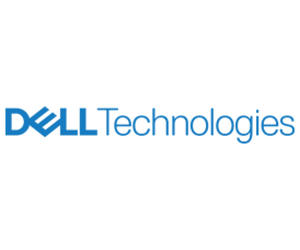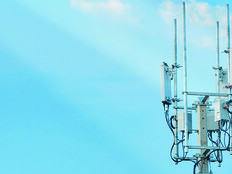Why 5G Matters for Government
To understand the significance of the 5G laptop, it’s important to look first at what the coming of next-generation broadband in general will mean for government.
The military already has a number of 5G pilot projects in play at military bases around the country. With its high bandwidth and low latency, 5G could strengthen resiliency and continuity of operations for the military service branches, while also enabling them to support emerging artificial intelligence and virtual reality applications for warfighters at the tactical edge.
“You can use AI to piece together what an attack looks like, where it may be coming from,” Cline says. “But to do that in real time, you need 5G’s virtually zero latency.”
On the civilian side of government, the Justice Department and Department of Homeland Security could use that same zero-latency capability to drive everything from emergency response to national security. Outside the security realm, 5G’s robust connectivity could help empower an increasingly disparate federal workforce.
For remote workers, 5G offers a more protected avenue of communications. “It has dual tunneling transmit technology, which helps to make it more secure,” Cline says.
5G will also be more readily available for agencies dealing with a high volume of citizen contacts or supporting a big deployment of fieldworkers. “You’ve got a whole lot more channels, a bigger frequency range, so you’re not going to run into situations where the system gets overloaded with calls.”
Given these factors, analysts have high expectations for 5G adoption overall, and especially in the federal space.
For example, Allied Analytics predicts the global market for 5G chipsets will reach $22.9 billion by 2026, representing a 49 percent annual growth rate. Much of that adoption will be on the federal side, according to the Armed Forces Communications and Electronics Association, a government and military trade association.
Public sector and defense “offer a variety of potentially exciting use cases, from defense operations using networks of sensors and smart devices — as part of smart bases for enhanced security, efficiency, improved situational awareness and civilian services — to 5G-connected warehouse robots shifting crates tagged with logistics tracking devices,” reports SIGNAL, AFCEA’s in-house magazine.
The rise of the 5G laptop will help the federal government make the most of this expanding broadband capability.
MORE FROM FEDTECH: Why agencies should keep security in mind as they deploy 5G.
How 5G Supports Robust Remote Work
With the coronavirus pandemic pushing many agencies to expand support for remote work, the federal government has embraced the laptop form factor.
“We sold a record number of notebook computers last year because it’s the easiest way to have a connection from wherever you happen to be right now,” Cline says.
With remote work expected to persist, federal employees likely will continue to lean heavily on these devices. 5G-enabled machines give IT administrators enterprise-grade options for offering executives and mobile professionals access to ultrafast speeds and reliable connectivity.
Dell’s testing shows the 5G-empowered Latitude 9510 can provide up to 300 percent improvement in download speeds compared with 4G, a potential boon to productivity. And it’s not just speedier — 5G is more reliable and secure than Wi-Fi hotspot connectivity, with greater capacity and improved performance.
This could be especially important as federal agencies, especially defense agencies, take greater advantage of the expanding Internet of Things landscape. Gartner estimates a global inventory of some 20 billion IoT endpoints, and the military will be looking for 5G connectivity to empower its use of these edge devices.
Looking ahead, Dell anticipates the near-term rollout of a ruggedized 5G laptop, which government might utilize for fieldworkers, emergency responders and military missions. The company also plans to release a 5G-enabled mobile workstation capable of supporting robust AI and VR workloads.
“Suppose you wanted to do field training on the avionics of a particular aircraft,” Cline says. “With VR, you’re able to go in there and open up that aircraft, to develop that muscle memory. 5G makes that possible.”
Federal agencies planning to pivot toward 5G laptops will need to build the upgrade into their budgets. “This is not something that you add to an existing notebook. The radio technology, the circuitry and the antenna array are all very different from 4G,” Cline says. “This will require all new devices that have this capability built into them and wired into them.”
For agencies that can get over the cost hurdle, an investment in 5G devices promises to yield long-term returns.
“This is going to be critical if our federal government is going to remain competitive. It’s vital to our economy and to our national security,” Cline says.
Brought to you by:











